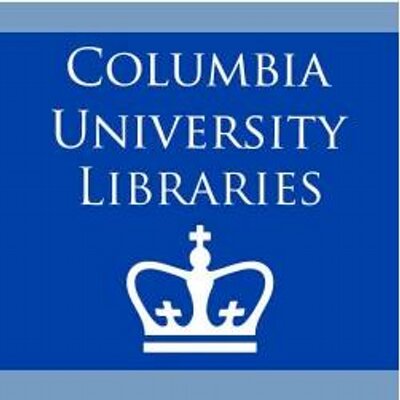
Revista de Arquitectura is an open access journal. More information...
Authors retain copyright and grant to the Revista de Arquitectura the right of first publication, which will be simultaneously subject to the Creative Commons (CC) BY-NC license.
Authors will sign a non-exclusive distribution license for the published version of the article by completing (RevArq FP03 Permission to Reproduce).
Self-archiving will comply with SHERPA/RoMEO guidelines and the Green classification.
To see in detail these guidelines, please consult...
Abstract
As a result of the rapid growth of Latin American peripheries, where the disconnection between planning processes and the scarce participation of architects is evident, it is necessary to identify trends related to processes of participation and construction of collective architectures. Through a comparative exercise between groups of recognized Latin American architects in seminars and competitions in the past twenty years, and who have undertaken interventions in peripheral areas of Latin America, common interests and operations have been identified, including community participation, interdisciplinary action, and the management and realization of low-cost projects with local materials. These emerging trends open diverse research spaces regarding the professional practice. These contributions strengthen the disciplinary interest in impacting processes of urban transformation that improve the ways of living and the quality of life of social groups. Additionally, the article identifies possible contributions to the commitments of the New Urban Agenda.

References
Arquitectura Expandida y Colectivo Huertopía (2019). Los Comunes urbano-rurales del Alto Fucha. En riego. Bogotá: Alcaldía de Bogotá, Secretaría de Cultura, Recreación y Deporte. Empresa de Acueducto y Alcantarillado de Bogotá. Recuperado de https://issuu.com/arquitecturaexpandida/docs/enriesgo
Arteaga I. (2005, enero-diciembre). De periferia a ciudad consolidada. Estrategias para la transformación de zonas urbanas marginales. Revista Bitácora Urbano Territorial, 9(1), 98-111. Recuperado de https://revistas.unal.edu.co/index.php/bitacora/article/view/18741
Brabham, D. (2013). Crowdsourcing. Cambridge: The MIT Press Essential Knowledge Series. Recuperado de http://wtf.tw/ref/brabham.pdf
Cepal y UN-Habitat (2017). Informe regional América Latina y el Caribe: ciudades sostenibles con igualdad. Quito: Cepal y UN-Habitat. Recuperado de https://repositorio.cepal.org/bitstream/handle/11362/40658/1/S1601057_es.pdf
Colciencias (2017). Modelo de medición de grupos de investigación. Convocatoria 781. Bogotá: Colciencias. Recuperado de https://www.colciencias.gov.co/sistemas-informacion/modelo-medicion-grupos
García Ramírez, W. (2012). Arquitectura participativa: las formas de lo esencial. Revista de Arquitectura (Bogotá), 14(1), 4-11. Recuperado de https://editorial.ucatolica.edu.co/ojsucatolica/revistas_ucatolica/index.php/RevArq/article/view/721
Gouverneur, D. (2016). Diseño de nuevos asentamientos informales. Medellín: Eafit.
Harvey, D. (2013). Ciudades rebeldes. Del derecho de la ciudad a la revolución urbana (trad. J. Madariaga). Madrid: Akal.
Hernández-Araque, M. (2016). Urbanismo participativo. Construcción social del espacio urbano. Revista de Arquitectura (Bogotá), 18(1), 6-17. http://dx.doi.org/10.14718/RevArq.2016.18.1.2
Informal Means: Alternative Design Practices in Latin(x) America (2019, marzo). Archdaily. [Poster] Recuperado de https://www.archdaily.co/co/913988/informal-means-alternative-design-practices-in-latin-x-america
Janoschka, M. (2012). Geografías urbanas en la era del neoliberalismo. Una conceptualización de la resistencia local a través de la participación y la ciudadanía urbana. Investigaciones geográficas, 0(76), 118-132. http://dx.doi.org/10.14350/rig.29879
Lefebvre, H. (1967). El derecho a la ciudad. Barcelona: Península.
Lerner, J. (2005). Acupuntura urbana. Barcelona: Institut d?Arquitectura Avançada de Catalunya.
Llano Loyola, J. (2017). Yo como colectivo: grupos de formación arquitectural en la época del capitalismo diy. En P. Moisset (ed.). La experimentacio´n proyectual: Actas VIII Projetar 2017. Buenos Aires: Universidad de Buenos Aires, FADU-Instituto de la Espacialidad Humana y otros.
ONU-Habitat (2016a). Word Cities Report. Urbanization and Development. Emerging Futures. ONU-Hábitat: Recuperado de http://wcr.unhabitat.org/wcr_downloads/world-cities-report-2016-abridged-edition/
ONU-Habitat (2016b). Documento de política 1: derecho a la ciudad y ciudades para todos. Naciones Unidas, Asamblea General. Recuperado de http://habitat3.org/wp-content/uploads/Policy-Paper-1-Espan%CC%83ol.pdf
Peñuela Velásquez, A. (2005, junio). La transdisciplinariedad. Más allá de los conceptos, la dialéctica. Andamios 2(1), 43-77. https://doi.org/10.29092/uacm.v0i2.492
Pradilla Cobos, E. (2014). La ciudad capitalista en el patrón neoliberal de acumulación en América Latina. Cadernos Metrópole, 31(16), 37-60. http://dx.doi.org/10.1590/2236-9996.2014-3102
Robertson, T. y Simonsen, J. (2012). Challenges and opportunities in contemporary participatory design. Design Issues, 28(3), 3-9. https://doi.org/10.1162/DESI_a_00157
Steffens, K. (2014). Urbanismo táctico, 3 casos latinoamericanos. Ciudad Emergente. Santiago de Chile: Fundación Ciudad Emergente. Recuperado de https://ciudademergente.org/aprender/urbanismo-tctico-3
Vial, C. (2008, agosto 8). 2G Dossier. Iberoamérica. Arquitectura Emergente. Archdaily. Recuperado de https://www.archdaily.co/co/02-9308/2g-dossier-iberoamerica-arquitectura-emergente
Yunis N. (2015, octubre 3). Alejandro Haiek: Debemos sustituir el rol del experto por el del ciudadano. Archdaily. Recuperado de https://www.archdaily.co/co/774700/alejandro-haiek-coll-debemos-sustituir-el-rol-del-experto-por-el-del-ciudadano

































